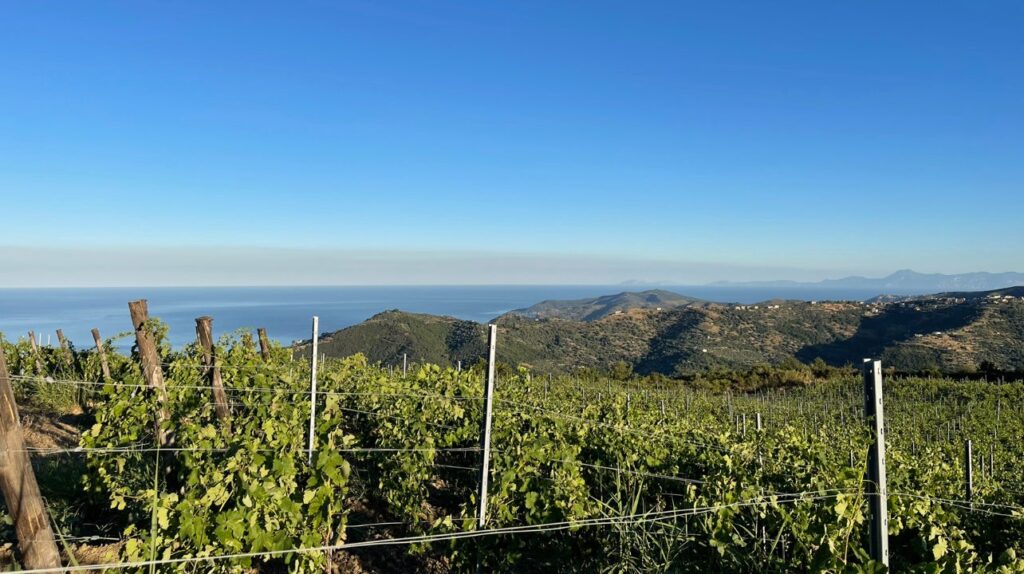The power of Italian inland areas in the integral ecological transition
In the Italian panorama and even more so in view of the elections that are about to take place, talking about politics inevitably exacerbates, alienates, divides. Tired of a policy of facade, of a policy of selfishness and individualism, the Italian people reveals, in fact as in the data, how much distrust you reserve for this type of policy, a policy that forgets to listen to and serve the community it should represent. Thus, while the abstention group is the only one that is gaining more and more adherents in this complex and difficult electoral campaign, the pursuit of common good risks being one of the many victims of this progressive impoverishment of Italian democracy.
With it also the Italian agri-food sector that, with its immense economic, human and landscape value, with its many small and very small businesses that drive the entire peninsula, is likely to remain crushed between price increases, lack of raw materials and labor, water scarcity and increasingly boiling temperatures.
Given the current intertwining of the many challenges that politics must try to answer, it is unthinkable to continue to think that there can only be ONE policy.
The policy that really aims at integral ecological regeneration It needs the territories and its internal areas, emblematic elements of Italian identity; it needs to re-establish direct relations with its citizens and with the many rural, urban, hilly and coastal communities; needs the European Union to ensure that regional policies are also translated at national and local level in accordance with Italian values and cornerstones.
Not a policy, but a mix of policies, economic, fiscal, environmental, agri-food, cultural, that are able to satisfy the common interest starting from multidimensional objectives. This requires new analysis tools, new strategies, new evaluation criteria to measure the impact but above all a new mentality capable of translating that eco-systemic thinking that in recent decades we have totally forgotten.
the Summer School “Policy mix for ecological transition in rural areas” part of the Master in Agricultural Economics and Policy that we hosted this summer at our Paideia Campus in Pollica was born exactly to fill this gap: returning the primary sector to be a resilient and multifunctional actor necessary to meet the needs and requirements of society as a whole (and therefore not just of farmers and consumers) by restoring integrated policies, horizontal, multidisciplinary and intersectional.
A training program made possible by the meeting and collaboration of different actors who are positioned at various levels in the current landscape: the Ministry of Agriculture, Food and Forestry (MIPAAF), the Department of Agriculture of the University of Naples Federico II, the Campania Region (Agriculture Department), Campania Development and theScientific Association "Centro di Portici" which brought, in the homeland of the Mediterranean Diet, professors, researchers, political, local and other representations. Some of the experts who led PhD students, young researchers and civil servants in this training program were Gianluca Brunoriprofessor at the University of Pisa and member of Standing Committee for Agricultural Research (SCAR), Teresa Del GiudiceDirector of the Summer School and President of the Centro di Portici Scientific Association, Pasquale Di Rubbo, Political analyst at the European Commission, Adele Picone, Coordinator of the 2nd Level Master of Architecture and Project for Interior Areas and Small Countries, DIARC of the University of Naples Federico II, Sonia Massari, Director of our Future Food Academy, Stefano Pisani, Mayor of Pollica and Giuseppe CilentoMayor of San Mauro Cilento.
A wonderful mix of experiences and skills that allowed participants to understand the importance of integral and integrated policies in the local community to pursue an ecological transition, a transition that inevitably rests on the cultural and digital transition. But also to understand the new skills required in agriculture, study the challenges of rural areas starting from what contained in the Recovery and Resilience Plan, by the European Strategy Farm to Fork, from Common Agricultural Policy Europe and from Next Generation EU and visit on the field real cases of agricultural regeneration as New Cilento Cooperative or La Petrosa Edmondo Soffritti.
Read the article on Nova Sole 24 Ore

